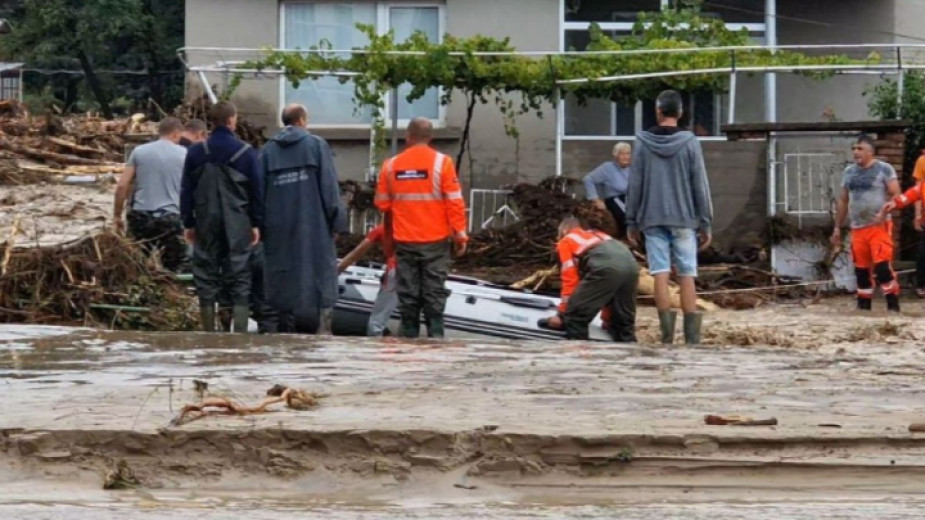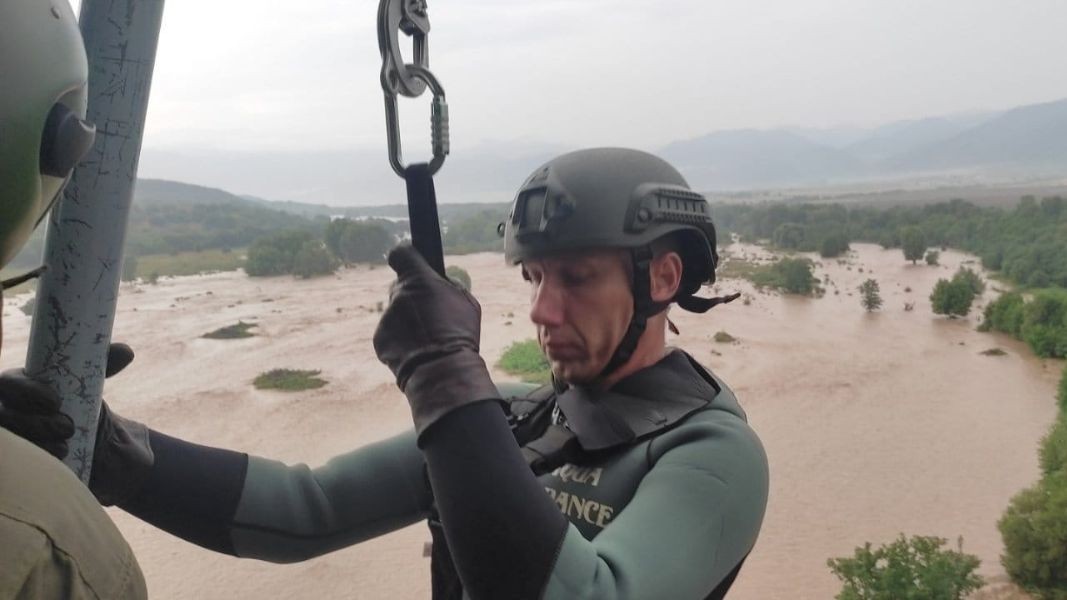September 2 marked the one-year anniversary of the devastating floods that struck the Karlovo villages of Bogdan, Karavelovo and Slatina. Many of the people affected are still unable to return to their homes, which are damp and uninhabitable, and continue to live in wagons. A few days ago, Svetlozar Yankov, a municipal councillor from Karlovo, noted that the region's infrastructure was in a poor state as repairs to the damage caused by the flooding were slow. According to him, the 10 million leva (5.1 million euro) allocated by the state for the municipality of Karlovo cannot cover the reconstruction works. Bridges are down, roads are blocked or destroyed, and the most important work is still to be done - the good strengthening of the river beds, which is also very expensive.
The upside is that some people's homes have already been rebuilt, entirely by volunteers and with funds donated by the hundreds of people who came to the aid of the victims in the first hours after the flood. This gave hope to the locals that with so much human support and empathy, little by little they would be able to get back to their former lives.
On this day last year Georgi Dimov from the village of Stoletovo lost all his property to the overflowing waters of the Stryama River. His sport fishing pools were swept away by the disaster. He barely escaped the flood himself, having to be evacuated by helicopter from a two-storey building near the fish ponds. Today, the horror of what Georgi and the hundreds of inhabitants of the affected villages experienced, is fading and giving way to gratitude for all the empathy, kindness and help they received from perfect strangers. Georgi Dimov says that to this day he is contacted by people from other towns who are willing to help. The disaster is powerless before the united efforts of all the good people who volunteered to help people like him, he says, tears flooding his eyes.
"We haven't sought help from either the municipality or the state, so I can't say anything about that, but at least the administration could have visited us and asked how we were. The only thing I can think of that I can now request the institutions to do is to clean the riverbed. More than half of the river is flowing out of its bed. Silt has accumulated for years and if it is scooped out, there will be less problems for the villages along the river in the next flood. As for the volunteers, so many people have come to the rescue that if it weren't for them we wouldn't have coped. The damage was extensive. Half of what we had was rebuilt thanks to the fact that so many people stepped up to help. Total strangers offered us physical, financial and all kinds of assistance, if it wasn't for them we would have been desperate. I received a call from an elderly woman in Sofia who insisted on sending me money from her pension. This really moved me to tears. Now the date of this disaster has even become a holiday with us. We want it to be like this every year - on September 2, the people who helped us come back to us, to be together and remember how important it is to be united and help each other."
After the disaster in September 2022, more than 15 volunteer groups of the National Association of Volunteers in Bulgaria immediately headed to the affected villages. Hundreds of thousands of man-hours of volunteer labour were put in to drain ground floors and clear river silt from people's yards. Alongside the relief work, a donation campaign was launched and the National Association of Volunteers alone managed to raise 200 thousand leva (over 100 000 euro) to help the victims.
"We built a purely human, sentimental bond with the people we were helping. We spent the night in people's houses, we made many friendships, we created lasting bonds," recalls Yassen Tsvetkov, President of the National Association of Volunteers in Bulgaria:
"Everyone expects the state to do all the work, but our state, like any other, has many imperfections", Yassen Tsvetkov notes. There is a lot to be desired about its work, but we must also come to terms with the fact that there is no state system and administrative apparatus in the world capable of dealing with such large-scale disasters.
It is no coincidence that in critical situations it is through volunteering that people are being rescued. In many European countries, volunteering is actually part of the institutions. And the fact that Bulgaria is slightly behind in developing the sector does not mean that volunteers do not play an important role in this country. Rather, we need to focus our efforts as citizens and institutions on improving the environment and encouraging people to volunteer, to be prepared so that when such a critical event happens, we can just go and do what we can on the ground."
In the summer of 2014, photographer Philippe Bazin and philosopher Christiane Vollaire traveled around Bulgaria, investigating a series of self-immolations in the country that happened in 2013. They filmed over 30 locations, conducted..
On 27 October, the first meeting of Action CA-24150 “Values in Turbulent Times: Navigating Social Change and Challenges (VISTA)” took place in Brussels. The initiative is part of the European Cooperation in Science and Technology (COST) programme – one of..
The so-called Seal of Biliteracy was created in 2011 in the US state of California with the idea that in the conditions of a globalized economy and relationships, it is not possible for a person to develop their full potential by..
The so-called Seal of Biliteracy was created in 2011 in the US state of California with the idea that in the conditions of a globalized..
On 27 October, the first meeting of Action CA-24150 “Values in Turbulent Times: Navigating Social Change and Challenges (VISTA)” took place in Brussels...
In the summer of 2014, photographer Philippe Bazin and philosopher Christiane Vollaire traveled around Bulgaria, investigating a series..

+359 2 9336 661
